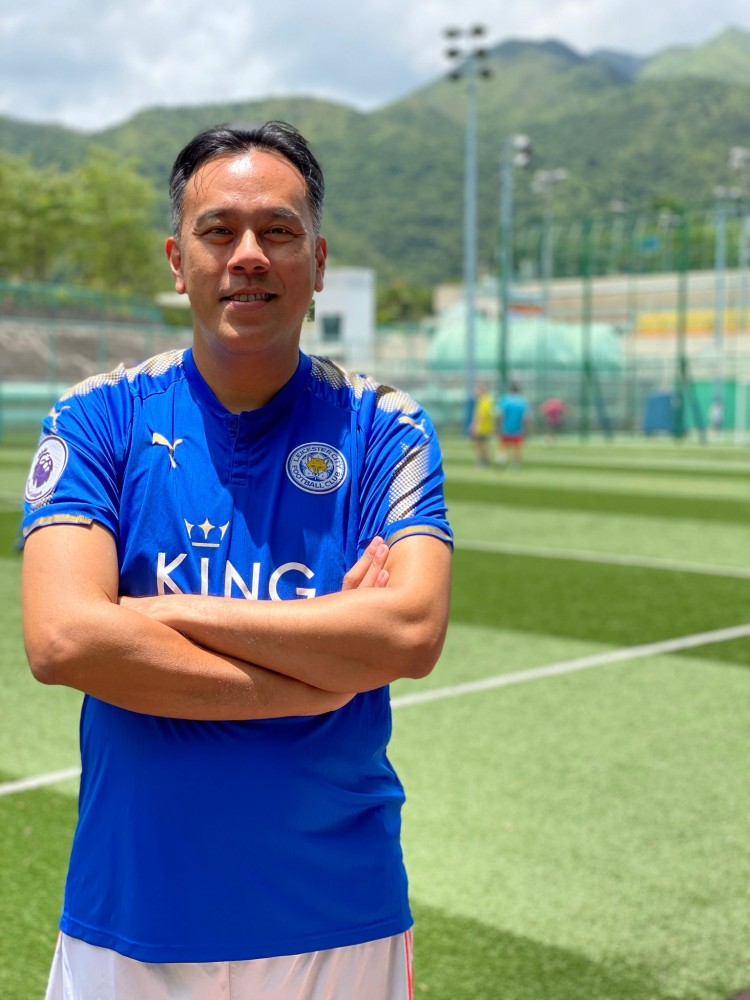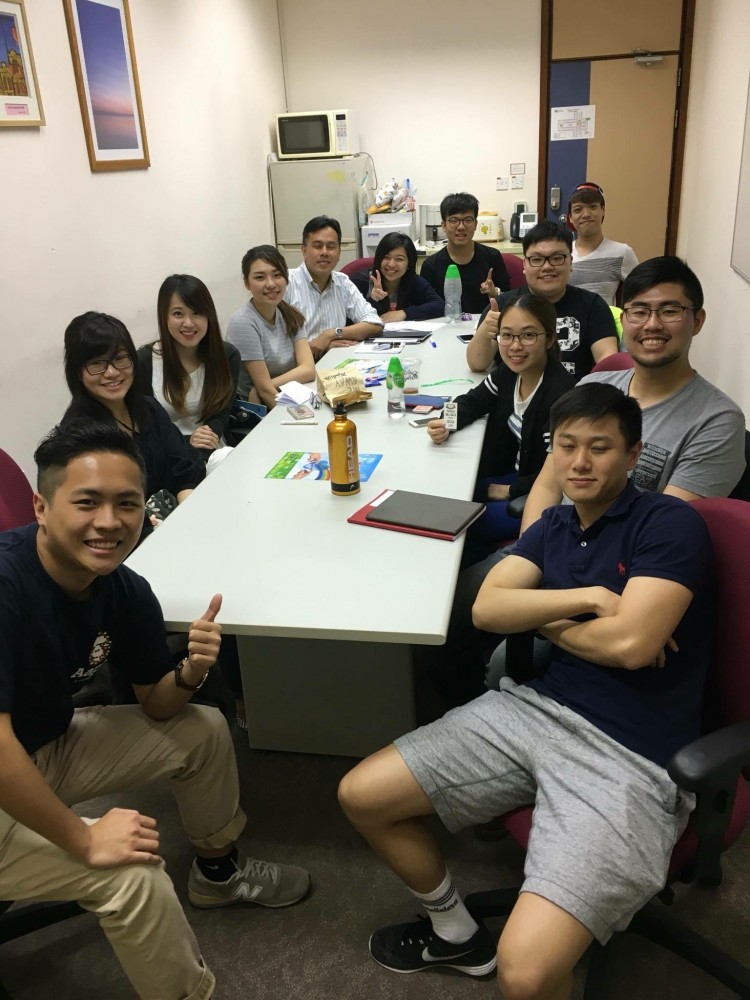Always believing in the potential of people: Dr Ho, empowering students for 10 years

Dr Lawrence Ho Ka-ki
Assistant Professor
Department of Social Sciences
"How many decades do people have in their lives?” (人生有幾多個十年) was a catchphrase from a TV drama that went viral about, well, a decade ago. I joined FLASS in 2012; this year marks the 10th year I have worked at FLASS. As the catchphrase suggests, a decade marks a significant milestone in anyone’s life. Perhaps this is the right time to give an account on how I have spent my life at this University over the past 10 years.
Let me begin my story from a point before I joined this University. I started my teaching career as a part-time lecturer teaching mature students at a community college around two decades ago. These were students who had left full-time education for a while already and were now working, but wanted to study again to equip themselves for work or life. These students came from very different educational backgrounds with a diverse range of abilities and expectations. They were divided even over what they understood to be the right format for writing an academic essay. Because of such diversity, I could not use the same method to teach all of them. I needed to spend time understanding them as individuals before I could figure out how to help them, and I needed to learn how to tailor my approach to suit their needs.
Before joining FLASS in 2012, I taught social sciences at another local university for a few years, where I met many under-confident and frustrated students. They were students with great intellectual potential, but were overshadowed by their somewhat incompetent language ability and interpersonal skills. At the time, I was a senior tutor at one of the university’s student dormitories. This role gave me more opportunities to talk to students and understand their learning difficulties. I was lucky to have a supervisor that granted me the leeway to design a curriculum that matched the aspirations of my students. With a bit of understanding and a customised curriculum, my students improved noticeably in their academic performances.
These two experiences shaped my mentoring of students henceforth, showing me how students could be very diverse in many aspects. I saw that a reasonable understanding of their situations had to come first, before any meaningful engagement with them could be made. This awareness has guided my mentorship of the students at FLASS.
Our faculty is very diverse in terms of its student intake. We have students taking education as well as non-education programmes. We have students being admitted as first-year freshmen and others joining us through senior-year entry. Some of our students use their DSE examination results to apply for a university place, while others come here as non-DSE students. On top of all this, FLASS is open to applications for UGC-funded and self-financed programmes. These differences often translate into dissimilar motivations, expectations and even self-images.
Students can be poles apart in terms of their academic strengths, ambitions to succeed, and career expectations.
I have been a student affairs coordinator or internship coordinator for most of the past decade I have spent working at FLASS. Through both teaching and coordinator roles, I have observed three types of students demanding our particular attention. First, we have a family of students taking non-education and self-financed programmes. I have noticed that they have very high expectations of themselves. The second group of students aspire to join the teaching profession. Even though they receive training in curriculum studies and pedagogy, I believe they find it difficult to truly understand what it means to be a teacher. The third type of students are those with an ethnic minority background. They are marginalised in some ways, as students often converse in Cantonese. It can be hard for some ethnic minority students to blend in.
Students at FLASS have different family backgrounds, educational backgrounds, dispositions, and ethnicities. Oftentimes, even within the same class, students can be poles apart in terms of their academic strengths, ambitions to succeed, and career expectations. The diversity and complexity of our student composition makes any uniform teaching approach likely to be futile. To nurture them effectively, teachers must constantly review their approach. If you are able to find the right approach, you will be able to realise these students’ potential. At FLASS, I could cite numerous cases to prove this point. To illustrate how much a person can change, two of my previous students come to mind.
The first one is a female student who studied for a non-education programme at FLASS. She was a graduate from one of the Hong Kong’s most historic and prestigious secondary schools; for various reasons, she simply couldn’t fit in the environment at EdUHK. She was withdrawn and refused to mingle with her fellow classmates. Lacking in motivation and pleasure to learn, she skipped classes and worked sloppily in her assignments. In a word, she felt out of place here. Hampered by these negative factors, it is unsurprising that at the beginning her academic results were less than satisfactory, despite receiving good language and academic training in her secondary school.
Having known her for a while, I found that there were reasons behind her underperformance. To reignite her desire to learn, I connected her with a group of researchers from the Department of Social Sciences (SSC) who met regularly to exchange research ideas, discuss assignments, and simply chit-chat while dining out. This group of students who wanted to achieve more became her peers at EdUHK and helped her rebuild a sense of belonging and community.
During one of the years she studied here, I organised a workshop where international scholars were invited to attend. I asked her and other members in the group to act as student helpers and to present their research projects at the workshop. Many of the guest scholars hailed these student helpers’ competence in research and gave them words of encouragement. Showcasing her language proficiency, her presentation at the workshop exceeded expectations, winning much appreciation from attending academics.
The support from her teachers, the companionship of the members from her research group, and being assigned a task where her strength was relevant so she earned praise from outside scholars all played a part in steering her out from her underperformance trap. Where she once failed to perform, she now had a fire lit under her to achieve more academically towards the end of her studies here. She went on to pursue a master’s degree in the UK followed by another master’s programme in Hong Kong. Full of confidence in herself, she now has a promising administrative job at a local university.

The second story that comes to mind is about a student who took an education programme. She was very attentive and active in my social science classes, but showed less interest in other lectures in curriculum study or pedagogy. She was good at humanity subjects like history, literature and philosophy. Students who are good at those subjects usually ask questions about meaning. They display an appetite for big questions and a thirst for knowledge about more fundamental truths.
One year, I was granted a teaching development grant which allowed me to engage her as a junior student researcher. I guided her to conduct a few social research projects both on and outside campus. Being involved in these research projects met her yearning to learn more about society and broadened her horizons. She had good learning potential to begin with, and only needed a spark to ignite her motivation to learn. Students like her perform overwhelmingly once they find that motivation. She ended up completing a master’s degree at a local university and securing a job at a public organisation.
These are two of the many success stories I have come across during my time at FLASS. I don’t want to propose a surefire formula for nurturing students, but I have consolidated a few lessons from my experiences with students over the years.
Displacement can be a powerful demotivator for a person... I have [also] always possessed the view that a person’s ability to perform is situational.
First, l learnt from these examples that displacement can be a powerful demotivator for a person. Humans are social creatures. We learn and explore only when we are put in the right social context. To give these so-called underachievers the momentum to learn, we need to help them build up their own inner circle where they can exchange views, discuss ideas and debate, or simply to protect them from negative thoughts.
Second, I have always possessed the view that a person’s ability to perform is situational. The two students mentioned above, for example, were able to unleash their potential when they were assigned tasks that they were confident about contributing to, and when they found subject areas they were keen to explore. Simply put, people are empowered by finding their identity and direction, building connections, and experiencing meaningful participation.
I have been through similar situations as my students, too. My academic trajectory was not a straight-forward one. After having completed a bachelor’s degree in history, I went on to pursue a master’s degree in public administration and policy. I didn’t go directly for a PhD afterward. Instead, I worked for several years, sometimes for part-time jobs, before enrolling for a part-time doctoral programme in criminology. Like my students, I experienced many doubts before making the decision to embark on an academic career.
Because I have taken an unusual journey in my academic pursuit, I strongly resonate with students who lose their will and grow directionless at some points in their life. I quite enjoy socialising with young people too, and have fun when I go watch football together with my students, alumni, and fellow teaching and administrative colleagues as well. Sometimes, when the mood is congenial enough, my students and I have heart-to-heart talks about a wide range of subjects. It is true that I need to spend a lot of time and effort to get to know my students and tailor an approach to empower them. But the bigger truth is that I find great joy in seeing them making progress.
I enjoy teaching very much. I relish bringing out the potential in people. I have always believed that people are gifted differently, and that people can change when they are positioned in their proper places. I have witnessed many students who have undergone amazing transformations when they were given the right amount of attention, affirmation and guidance. I think this is the most exciting and fulfilling part of my job. More importantly, it is a collective learning process; I, too, have also made progress in the process. As an extra bonus, I have grown more sensitive to people’s needs and I feel that I have keener insight when it comes to recognising the potential in people.
There are a limited number of decades a person can experience in their lifetime. As for me, I can confidently say that the last decade I spent at EdUHK has been a rewarding one.
(Dr Lawrence Ho collaborated with Tam Siu-man on this piece)
